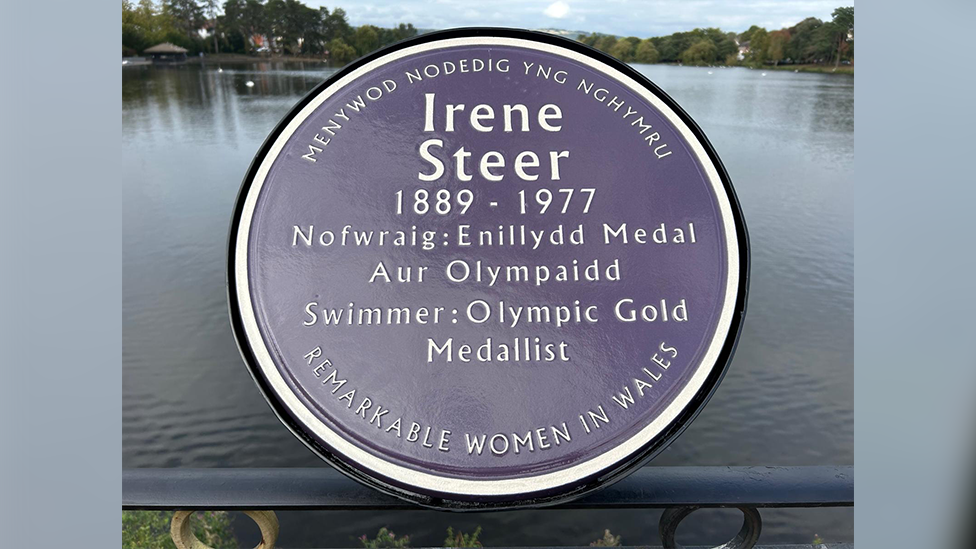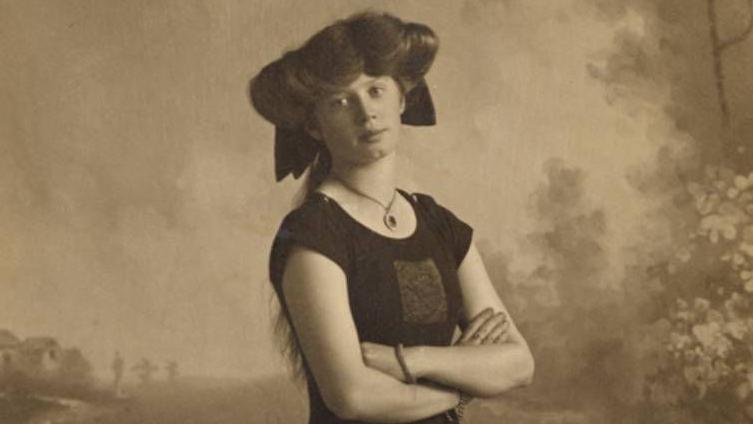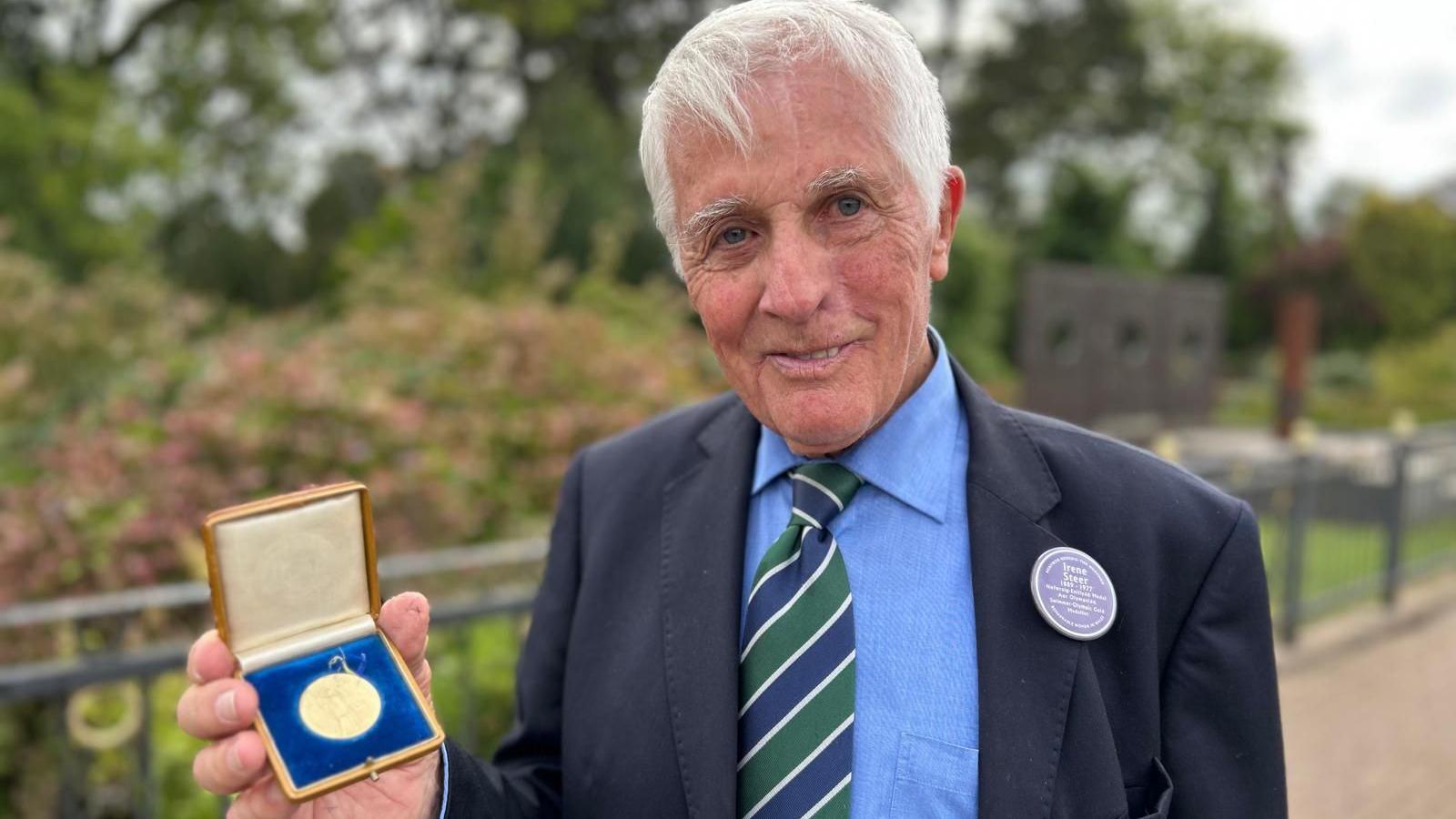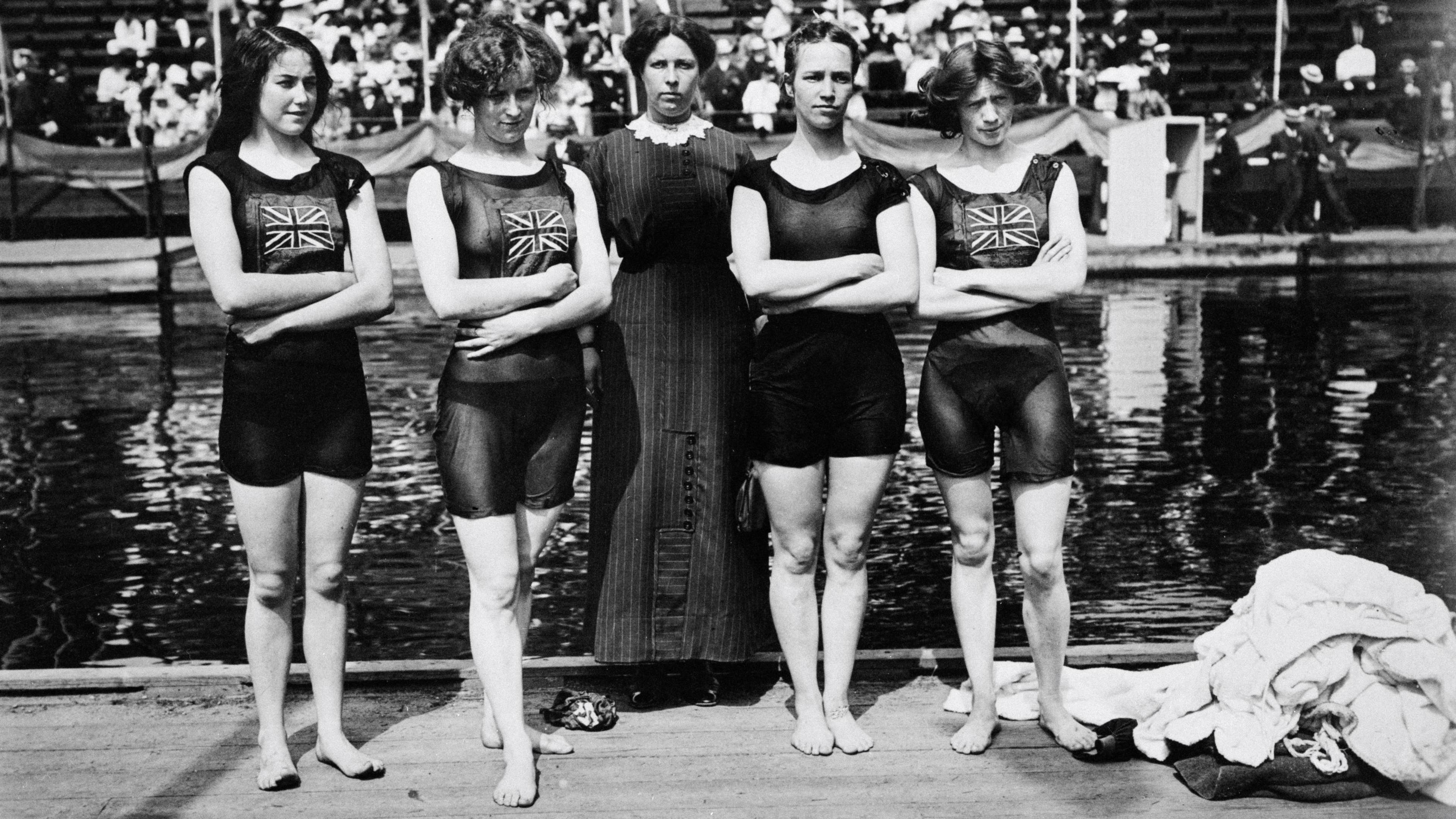Plaque for first Welsh woman to win Olympic gold

The plaque was unveiled at Roath Park Lake in the Cardiff on Friday
- Published
A special plaque has been unveiled to commemorate the first Welsh woman to win Olympic gold.
Irene Steer, from Cardiff, made history by securing gold at the 1912 Olympics in Stockholm, the first games that allowed women to compete in swimming.
The purple plaque was unveiled at Roath Park Lake in the city on Friday, as part of a campaign to highlight women who have "cemented their legacy" in Welsh history, external.
It follows questions as to why there are currently no statues honouring the sportswomen of Wales, as Steve Jones MBE became the latest sportsman out of 18 to be commemorated with a statue.

Irene Steer, from Cardiff, made history by securing gold at the 1912 Olympics in Stockholm
Aged 23 at the time, Steer was the first of just seven Welsh women to have won a Olympic gold medal.
Steer swam the anchor leg in the 4x100m freestyle relay final on 15 July 1912 for Great Britain.
They won gold in a world record time of five minutes and 52.8 seconds.
Prior to her Olympic glory, between 1907 and 1913, Steer held the Welsh championship unbeaten every year and was described in reports of the races as a "beautiful", "neat" and the "most graceful swimmer".
It took another 96 years before another Welsh woman, cyclist Nicole Cooke, won another gold again.
Catrin Stevens, historian and sports project manager for Women's Archive Wales, has been working on the project to highlight women in sport in Wales who have been "totally forgotten and neglected".
"The idea is to inspire young people to emulate these heroines," Ms Stevens told BBC Radio Wales Breakfast.
"We know about men in sports, names roll off the tongue, but a lot of women people don't even know their names."
She said Steer was a "pioneer" and a "trailblazer".
"She held jointly the world record for 100m in 1910, 1912, 1913," she added.

Irene Steer's grandson, David de Lloyd, was also at the unveiling
Fergus Feeney, chief executive of Swim Wales, said Steer was "ahead of her time".
"There were 2,500 competitors at the Stockholm Olympics, and less than 50 were women," he said.
Leaving Cardiff to represent GB in 1912 would have been seen as breaking the mould for women of that time, said Mr Feeney, as women did not even have the vote until 1928.
"This was at a time when women's independence and the suffragette movement was at its peak," he said.
"Women didn't do this kind of stuff."
In modern day metrics, Steer was a Welsh champion over about 93m (305ft), said Mr Feeney.
"She was a very fast swimmer," he said.
"She made her own way to Stockholm. It's not like today when they're treated like VIPs, no teams of physiotherapists. She packed a bag with a swim costume, goggles, and hat and off she went."
"It's hugely impressive to think there were only 50 women and she was one of them."

Irene Steer (far right) swam the anchor leg in the 4 x 100m freestyle relay final for team GB
Sue Essex, of Purple Plaques Wales, said Steer was a "truly remarkable woman" and it seemed appropriate to put the plaque at Roath Lake for "everyone who visits the park to see".
Jane Hutt, the Welsh government's cabinet secretary for social justice, said her legacy "reminds us that when women and girls are given the right support and opportunities, they can achieve extraordinary things".
"Her story, and those of others honoured by the Purple Plaques campaign, inspires us to keep breaking barriers and ensure every woman's contribution is recognised and remembered."
Related topics
- Attribution
- Published14 September

- Attribution
- Published15 September
